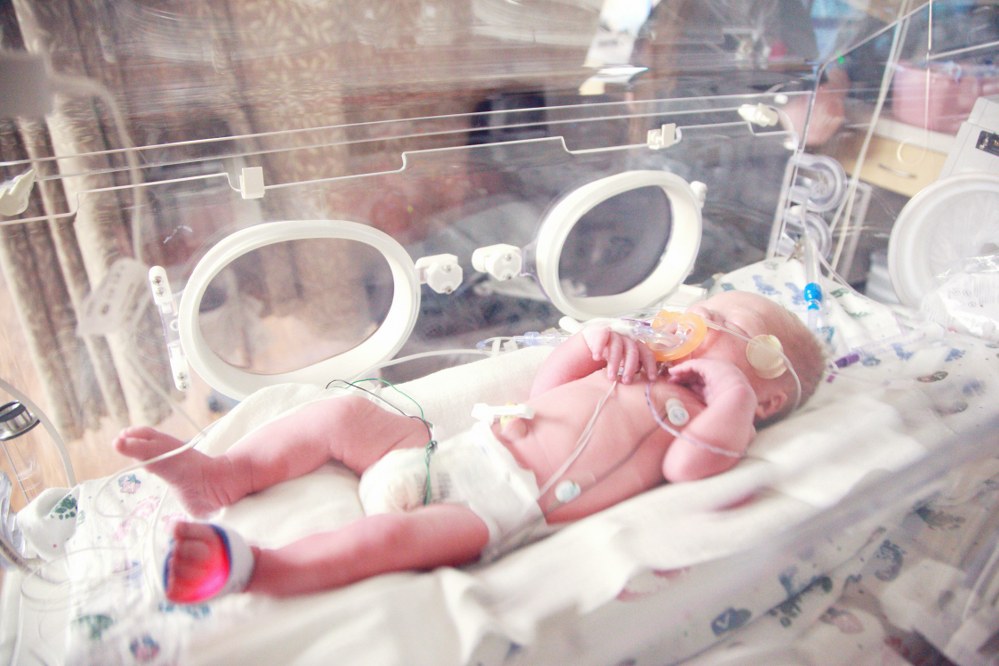Premature birth, a heartbreaking reality for many parents, can be even more challenging for single parents who have to manage this difficult time without the support of a significant other half.
According to the Imperial Biomedical Research Centre, premature birth is a leading cause of child mortality worldwide. In the UK alone, an estimated 53,000 babies are born prematurely each year. These tiny fighters often face many health issues, from respiratory problems to developmental delays. The emotional toll on any parent, not least a single parent, can be overwhelming, often leading to feelings of anxiety, depression, and guilt.
This article provides practical tips and support to help single parents navigate the complexities of raising a premature baby.
Coping with the NICU rollercoaster
Having a newborn in the Neonatal Intensive Care Unit (NICU) can be an emotionally taxing experience and a strain on your mental health, more so if you are parenting solo. According to Bliss, single parents of premature babies may experience a vast range of feelings, including fear, sadness, anger, guilt, and helplessness. You need to acknowledge and validate your emotions – there’s no single “right” way to feel.
However, navigating this emotional rollercoaster can be draining. Here are some strategies to help single parents cope with the stress of the NICU:
- Prioritize self-care: While your baby’s needs are paramount, neglecting your own well-being and mental health can hinder your ability to care for them effectively. Stick to a daily routine, including healthy meals, regular sleep, and personal hygiene. Even short breaks outside the NICU can help you recharge.
- Seek support: Connect with other NICU families who understand the unique challenges you face. Talk to a counsellor or social worker, or utilize support groups, such as Bliss, Netmums, etc.
- Focus on the positive: While concerns are valid, celebrate every milestone and positive development. This can help maintain hope and motivation on difficult days.
- Remember, you’re not alone: The NICU staff is there to support you. Ask questions, voice your concerns, and utilize their expertise to feel empowered during your baby’s journey.
 How can I soothe my baby in the NICU?
How can I soothe my baby in the NICU?
To soothe your baby in the NICU, talk in a calm, soothing voice, keep lights dim, and minimize noise. While it’s natural to want to interact frequently, prioritize your baby’s sleep by allowing them to rest when needed. This gentle approach builds a comforting environment for your little one.
Educate yourself on premature baby care
Understanding your premature baby’s unique needs is crucial for providing the best possible care. This includes learning about respiratory support, temperature regulation, and nutrition. Premature babies often require extra attention in these areas, so seeking guidance from your hospital is essential.
Kangaroo care—skin-to-skin contact between a baby and a parent—offers numerous benefits. These benefits include reducing the risk of newborn health problems, promoting breastfeeding, and building a bond between parents and babies. However, for parents of premature babies in the NICU, providing kangaroo care can be challenging due to their infants’ fragile condition.
The i-Rainbow, an evidence-based clinical guide, aims to address this challenge. This tool helps doctors and nurses to determine the appropriate level of interaction a premature baby is ready for, including kangaroo care. The guide uses a six-level colour-coded acuity scale, with each stage outlining specific medical criteria and corresponding activities for parents to choose from. By starting with gentle interactions like sharing the maternal scent or placing still hands on the baby, the i-Rainbow prepares babies for kangaroo care. This approach allows parents to actively participate in their baby’s care while respecting their infant’s limitations.
Feeding tips for premature babies
According to the NHS, successful breastfeeding is crucial for reducing the risk and severity of complications in premature infants. However, mothers of premature infants are often less likely to have successful breastfeeding experiences compared to those of full-term babies.
Separation in the NICU, poor sucking ability, and emotional stress from preterm delivery can complicate breastfeeding. For single parents, choosing the right feeding method becomes even more critical. While formula feeding can be an effective solution, you need to exercise caution, especially with cow’s milk-based formulas.
The NEC lawsuit against major formula manufacturers, including Abbott Laboratories (Similac) and Mead Johnson (Enfamil), raises concerns. It claims that cow’s milk-based formulas may increase the risk of necrotizing enterocolitis (NEC) in preterm and low birth weight infants. TorHoerman Law notes that NEC is a serious intestinal disease that can be life-threatening for premature babies. The lawsuits have gained significant attention, with some manufacturers being ordered to pay hundreds of millions of dollars in settlements.
It’s essential for parents to consult with their paediatrician regarding the most suitable feeding option for their baby. They may recommend specialized formulas designed for premature infants or discuss the possibility of supplementing breastfeeding with formula.
When formula feeding, parents should follow the instructions carefully, ensure proper preparation, and store the formula according to guidelines. Additionally, they should monitor their baby for signs of discomfort or intolerance and consult their paediatrician if any concerns arise.
Be mindful of developmental milestones
Premature babies often reach developmental milestones at a slower pace than full-term babies. It’s crucial to be patient and work closely with your paediatrician to track your child’s progress based on their adjusted age.
According to a study published in Child Development, not all premature babies experience long-term developmental problems. The study categorized preemies into three risk groups:
- High-functioning: About 20% of preemies scored above average on cognitive tests.
- Intermediate: 41% of preemies performed well in memory, vocabulary, and reading but struggled with pattern recognition and working memory.
- Low-functioning: Nearly 40% of preemies scored below normal on all cognitive and attention tests.
The study emphasizes the importance of individualized care for premature babies, as their experiences can vary significantly. By understanding these risk categories and working closely with your paediatrician, you can tailor your child’s care to their specific needs.
When do premature babies start walking?
Premature babies typically start walking later than full-term infants. While full-term infants walk around 12 months, extremely and very preterm infants usually achieve independent walking by around 14 months. In very high-risk infants, this milestone may be further delayed, occurring at approximately 16 months.
Take advantage of financial and social support resources
As a single parent caring for a premature baby, financial and social support resources can make a significant difference as you may not be able to work and may face travel costs. There are a number of government-funded development services, you might qualify for depending on your financial situation. None are aimed specifically at parents of preemies and all are means tested: Child Benefit, Child Tax Credit, Sure Maternity Grant, and Healthy Start Scheme, as well as Best Start Grant and Best Start Foods in Scotland.
Non-profit organizations offer additional support, including guidance on navigating which support is available to you locally and access to essential baby care items. Some hospitals have a team of health professionals that will help you with the transition from the NICU to home. Being able to access these services, means you can guarantee your kid get the best care possible.
What is the biggest problem premature babies face?
The primary concern for premature babies is the significant health risks linked to early birth. Many organs, including the brain and lungs, are still maturing. This can result in challenges with maintaining body temperature, feeding, and a heightened likelihood of developmental delays in the future.
In summary
Caring for a premature baby as a single parent can be a challenging journey, but it’s also incredibly rewarding. By understanding your baby’s unique needs, seeking support, and prioritizing self-care, you can create a nurturing environment for your child to thrive. Be patient, celebrate milestones, and seek help when needed. With love, perseverance, and the right support, you can successfully navigate the challenges of single parenting a premature baby.



